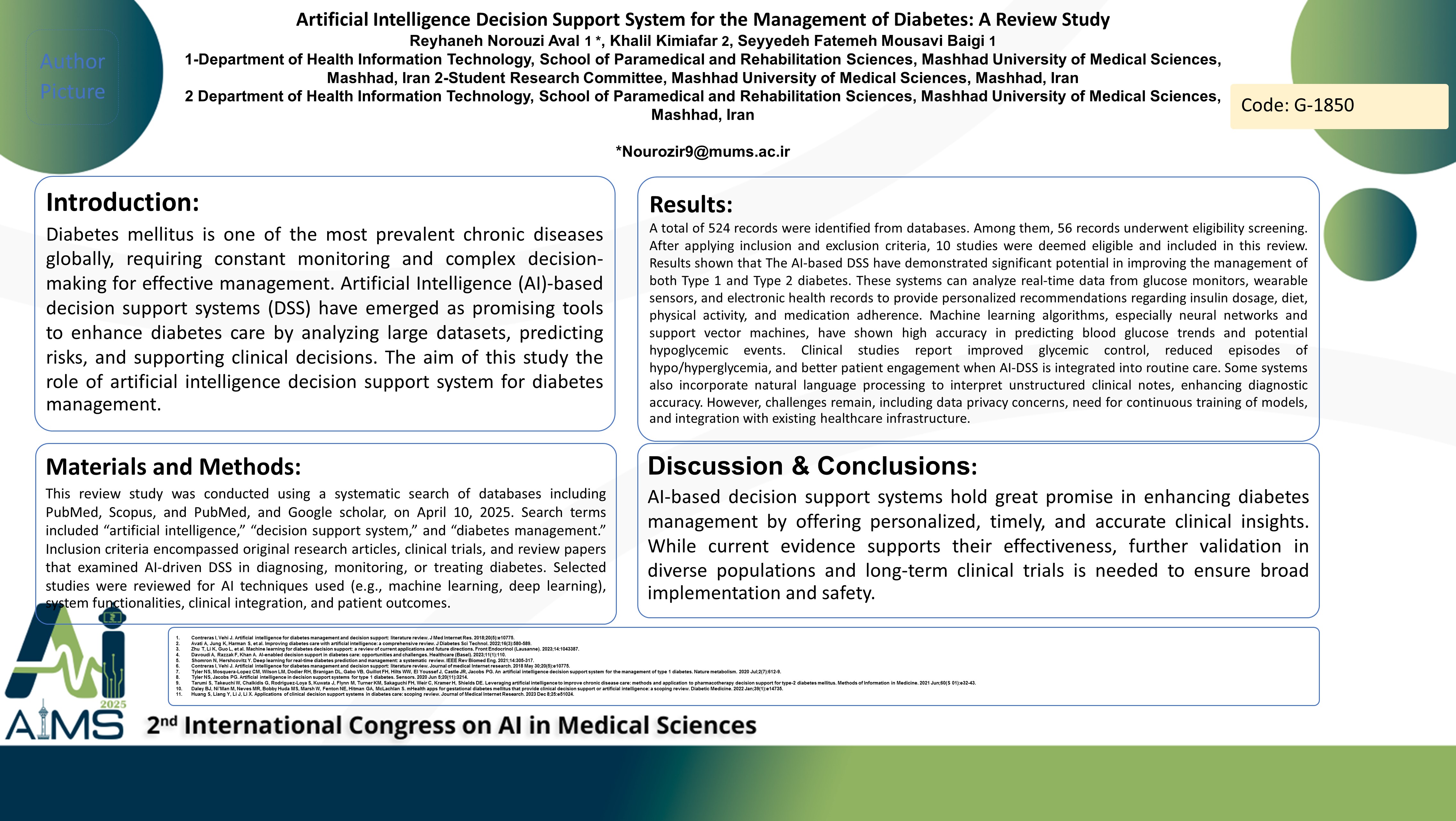سیستم پشتیبانی تصمیم گیری هوش مصنوعی برای مدیریت دیابت: یک مطالعه مروری
کد: G-1850
نویسندگان: Reyhaneh Norouzi Aval * ℗, Khalil Kimiafar, Seyyedeh Fatemeh Mousavi Baigi
زمان بندی: زمان بندی نشده!
برچسب: سیستم های تصمیم یار بالینی
دانلود: دانلود پوستر
خلاصه مقاله:
خلاصه مقاله
Background and aims: Diabetes mellitus is one of the most prevalent chronic diseases globally, requiring constant monitoring and complex decision-making for effective management. Artificial Intelligence (AI)-based decision support systems (DSS) have emerged as promising tools to enhance diabetes care by analyzing large datasets, predicting risks, and supporting clinical decisions. The aim of this study the role of artificial intelligence decision support system for diabetes management. Method: This review study was conducted using a systematic search of databases including PubMed, Scopus, and PubMed, and Google scholar, on April 10, 2025. Search terms included “artificial intelligence,” “decision support system,” and “diabetes management.” Inclusion criteria encompassed original research articles, clinical trials, and review papers that examined AI-driven DSS in diagnosing, monitoring, or treating diabetes. Selected studies were reviewed for AI techniques used (e.g., machine learning, deep learning), system functionalities, clinical integration, and patient outcomes. Results: A total of 524 records were identified from databases. Among them, 56 records underwent eligibility screening. After applying inclusion and exclusion criteria, 10 studies were deemed eligible and included in review. Results shown that The AI-based DSS have demonstrated significant potential in improving the management of both Type 1 and Type 2 diabetes. These systems can analyze real-time data from glucose monitors, wearable sensors, and electronic health records to provide personalized recommendations regarding insulin dosage, diet, physical activity, and medication adherence. Machine learning algorithms, especially neural networks and support vector machines, have shown high accuracy in predicting blood glucose trends and potential hypoglycemic events. Clinical studies report improved glycemic control, reduced episodes of hypo/hyperglycemia, and better patient engagement when AI-DSS is integrated into routine care. Some systems also incorporate natural language processing to interpret unstructured clinical notes, enhancing diagnostic accuracy. However, challenges remain, including data privacy concerns, need for continuous training of models, and integration with existing healthcare infrastructure. Conclusion: AI-based decision support systems hold great promise in enhancing diabetes management by offering personalized, timely, and accurate clinical insights. While current evidence supports their effectiveness, further validation in diverse populations and long-term clinical trials is needed to ensure broad implementation and safety.
کلمات کلیدی
Diabetes Mellitus, Artificial Intelligence, Decision Support
